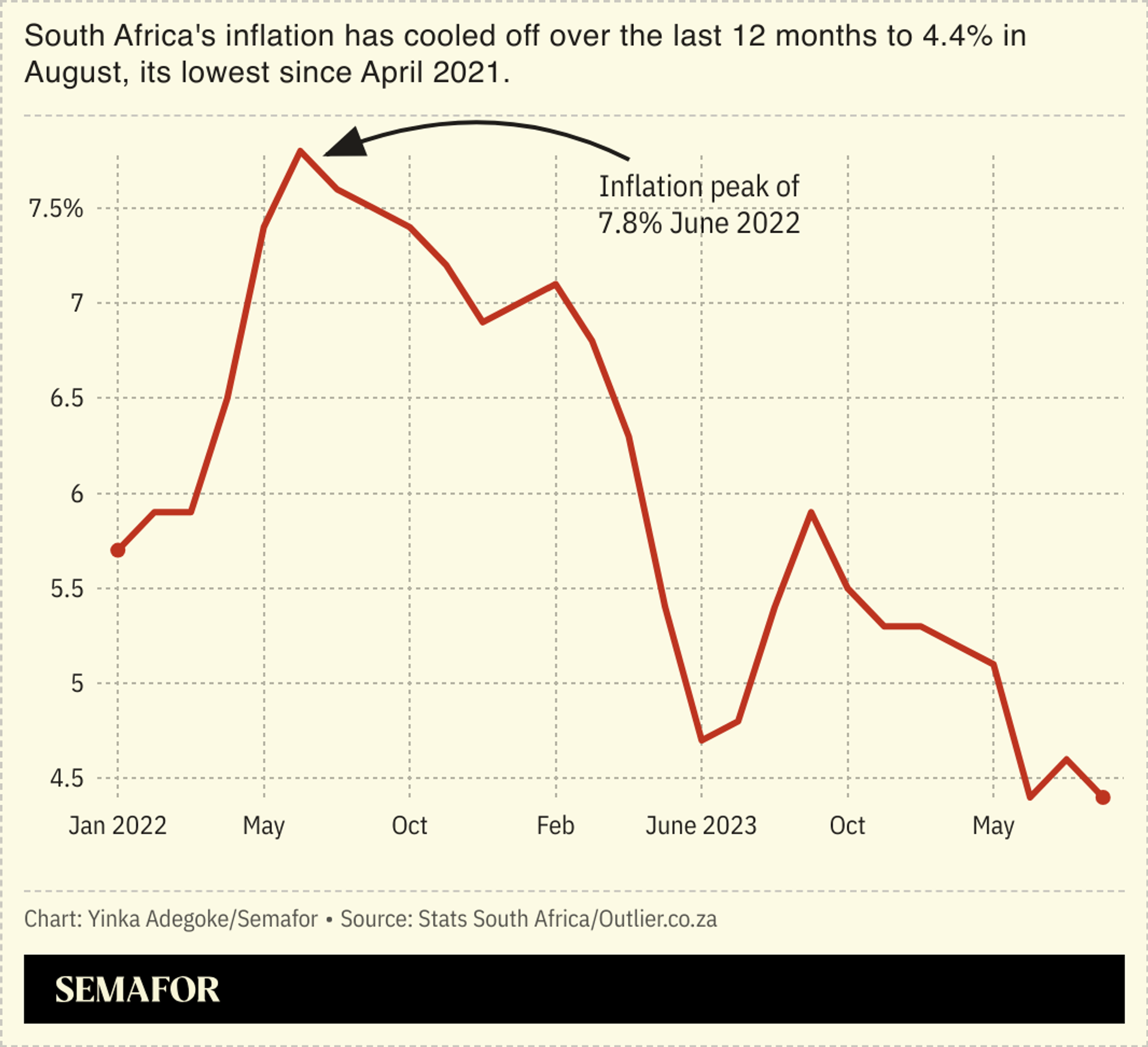The News
JOHANNESBURG/NEW YORK — Cyril Ramaphosa smiled broadly while telling business leaders about his plans to transform South Africa into an investment hub.
The country’s president, speaking at a meeting on the sidelines of the United Nations General Assembly in New York last week, had every reason to be happy. South African stocks are on a tear, while the coalition government has buoyed hopes that the country’s debilitating power and transport problems can be fixed.
“The business community is responding very positively to our reforms,” he said at the meeting, a roundtable event bringing together executives, bankers, and officials from a variety of governments and finance institutions.
“We are pointing in the right direction and our reforms are starting to gain traction,” said Ramaphosa, adding that his government’s policies “will improve the business operating environment and attract investment.”
Ramaphosa’s positive message has been matched by investor sentiment around South Africa. The country’s stocks have had their strongest third quarter for 11 years, and quarterly index measuring consumer sentiment compiled by the Bureau for Economic Research has also ticked up to pre-covid levels.
South Africa has not endured the rolling nationwide power cuts that throttled the economy — known as “loadshedding” — for around six months, which analysts cite as a key factor in the country’s resurgence. That has been helped by the central bank cutting its main interest rate last month for the first time since 2020 amid slowing inflation, days after the U.S. Federal Reserve’s rate cut signaled a shift in global monetary policy.

Know More
It’s a far cry from the days after the May 29 election. Back then, the failure of Ramaphosa’s African National Congress to secure a parliamentary majority for the first time since the end of apartheid in 1994 caused market jitters as investors feared the possibility of a populist coalition, including left-leaning parties. And the president’s position seemed in jeopardy.
The center-left ANC was forced to form a coalition government with nine other political parties that included its main political rival, the center-right Democratic Alliance, and the conservative Inkatha Freedom Party. This “Government of National Unity” is now being positioned by the president and his cabinet for geopolitical partners and international investors alike as a sign of South Africa’s political maturity as well as a solid base for its future economic stability and growth.
Indeed, ratings agency Fitch has noted the coalition’s role in reducing the political uncertainty associated with this year’s elections. In a note last month, it said structural reforms “will contribute to a modestly increasing real GDP growth.” The economy will also be boosted by the reduction in the frequency of rolling blackouts that have crippled productivity since 2008.
“More reliable power will not transform South Africa’s supply-side performance over the medium term, although it should result in a significant reduction in supply-side constraints in the next couple of years,” said the ratings agency. It went on: “Fitch projects South Africa’s potential growth rate at 1% over the next five years, which is an improvement on the past few years, although still very low by emerging-market standards.”
Sam’s view
The relative stability of the coalition has been a pleasant surprise and is a positive factor for business, which need a predictable environment. The reduction in interest rates could provide a boost to consumer confidence, further generating positivity in the economy.
But it isn’t all plain sailing. The fundamentals of a doddering economy and public sector decay haven’t changed. South Africa still struggles to contain the violence that has made it sub-Saharan Africa’s most dangerous country by a wide margin. And corruption continues to hinder both business and private citizens in one of the most unequal societies in the world.
It would take deep structural reforms and consistent actions by the government to make a dent to unemployment, which rose to 33.5% in the second quarter of this year, up from 32.9%. The figure could be higher when those who have given up hope of finding employment are considered.
The coalition government has started strong and is already making South Africa more appealing to the global business elite, but there’s still a long way to go.
The View From The C-Suite
Sim Tshabalala, the CEO of Standard Bank, joined the South African government’s delegation at meetings during UNGA. Speaking at Semafor’s The Next 3 Billion event last week, he said coalition government officials were in agreement on policies to attract more investment and grow the economy.
He said government officials made clear that South Africa must participate in the African Continental Free Trade Area to “make it easier for people, goods, ideas and capital to move throughout the continent.” Tshabalala also said the government was committed to accelerating policies to develop the electricity network, roads, and ports needed to grow the economy.
Room for Disagreement
The market euphoria is entirely unjustified because the coalition is just a mash up of incompatible parties with no policy platforms and policy contours, according to Claude De Baissac, CEO of Johannesburg-based risk advisory firm Eunomix.
“It’s astounding that the new government has no common policy platform,” he said. “It has allowed the internal ANC battles that have dogged Ramaphosa during his first term to be quietened down in the name of the need for internal unity after electoral decline.”
